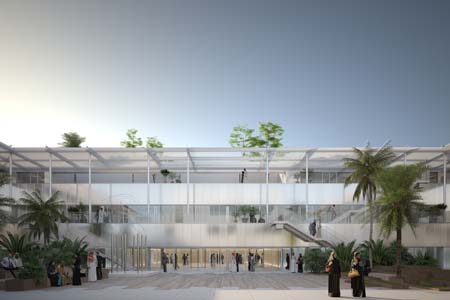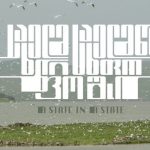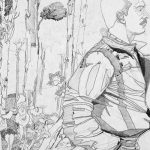The film programme, which began on March 23, will last until May 9, 2022.
Jameel Arts Centre, a contemporary art institution in Dubai, is running a film programme called Staple.
The film programme reflects the ecological, social, and geopolitical relationships between food and food systems. These films are programmed in conjunction with the exhibition Staple: What’s on your plate? curated by Rahul Gudipudi and Danielle Burrows and currently showing at Hayy Jameel, Jeddah.
The exhibition was developed collaboratively by Art Jameel and Delfina Foundation.
The film programme, which started on March 23, will run until May 9, 2022.
In its latest iteration of Library Circles, Jameel Library presents food writer and filmmaker Salma Serry’s research, developed over the past few years, in which she explores regional menus as a site of confluence where history, knowledge, politics, economies, senses and semantics are revealed. Serry expands her research methods to include printed menus, informal publications, interviews, and personal photo archives, to construct and share overlooked archival material that pieces together a regional narrative.
In conjunction with ‘Library Circles: Salma Serry’, Art Jameel launches #dubaizaman, a collaborative project that asks participants to dig into their personal archives for the Kodak moments of birthdays, weddings, graduations and various jovial celebrations, expressed through what is served on the table.
The films include Value in a state of economic crisis by Franziska Pierwoss, Table Manners Season 2: Dorcas eats roasted snail and drinks Maltina by Zina Saro-Wiwa, RETURN by Michael Rackowitz, Semiya (Seed Song) by Cecilia Vicuña, You think the Earth is a dead thing by Florence Lazar, Bayyaratina by Suha Shoman, and There is an edible gold by Moza Almatrooshi.
In March 2021, the Lebanese local currency reached a record low on the black market, losing more than 85% of its value. Supermarkets are at the epicentre of the ongoing economic crisis, where the quotidian shopping experience is characterised by anxiety and uncertainty due to daily price fluctuations. The unfolding crisis is narrated in Value in a state of economic crisis through a series of artist-led interviews with consumers, employees, and managers of small and large-scale businesses.
Dorcas Eats Roasted Snail and Drinks Maltina is an excerpt of a series of films entitled Table Manners, which depicts the people of Ogoniland, Nigeria, eating in front of the camera. In this film, eating becomes an act of collective memory, highlighting the centrality of regional culinary ingredients and traditions. The film deliberately reverses the gaze, asking the viewer to consider contemporary political and socio-economic struggles.
In 2006, Michael Rakowitz re-opened Davisons & Co., his grandfather’s import and export business who fled to Bombay in 1940 following exile from Iraq. RETURN begins as a symbolic gesture to reinitiate the shipping of goods between the two countries, and to facilitate a space for dialogue and exchange between Iraqi diaspora and American families with relatives stationed in Iraq, and develops into an effort to revive Iraqi date exports and trade economy while surfacing the continued hindrances, delays and costs of import faced by exporters long after the embargo on Iraqi produce was lifted.
In Semiya (Seed Song), “video poem,” Vicuña gathers endangered native seeds in the Colchagua region, in the foothills of the Andes mountains in Chile, on May 28, 2015. This work recreates and continues her work on behalf of seeds, which began in 1971, in Santiago de Chile.
Stemming from a larger investigation that began in Martinique, the film examines the long-term ecological and health effects of Chlordecone, a carcinogenic insecticide used for more than 20 years on the island’s banana plantations. You think the Earth is a dead thing weaves together images of lush scenery from the island and its banana plantations with interviews of herbalists who use plants that were once the only medical resource of enslaved people to counteract the ecological and health devastation caused by the pesticides, and farmers reclaiming uncultivated lands to grow indigenous vegetables free from industrial pesticides.
Narrated by the artist, Bayyaratina tells a Palestinian story of tragedy and hope through the history of her family’s orange grove in the Beit Hanoun area of northern Gaza. Alleys of abundant orange trees lined with palm trees are interspersed with family portraits as Shoman describes the developments of the groves until 2002. At the start of the Second Intifada, Israeli troops began a series of invasions into Gaza, each one leaving its scars on the groves.














































































